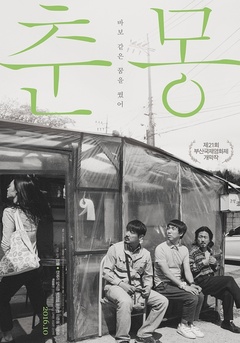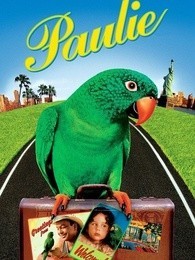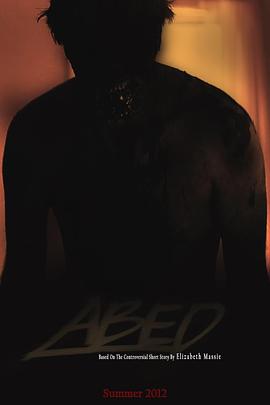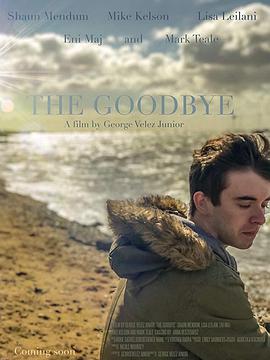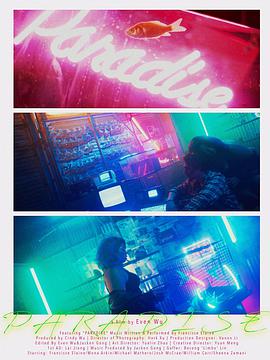- 三三云1
- 三三云2
- HD
- 一诺千金
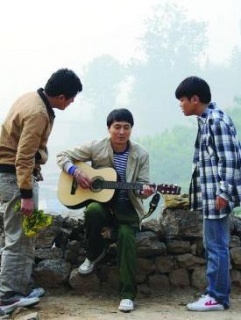
一诺千金
- 主演:
- 奥利弗·古尔迈 杰瑞米·雷乃
- 备注:
- HD
- 类型:
- 剧情片 剧情
- 导演:
- 内详
- 年代:
- 2003
- 地区:
- 欧美
- 更新:
- 2024-04-18 10:40
- 简介:
- 当导演的作品被称为“良心电影”时,那么这样的作品绝不能像娱乐或个人表达那么简单,而必然会引起导演个人社会解读视角与现实的碰撞,引起强烈共鸣。观众。比利时导演达尼兄弟被誉为“比利时良心”。看完他们的作品《一诺千金》后,他们深感得到的赞美不是一种姿态,而是一种对社会和人文.....详细
THE PROMISE is Dardenne Brothers’ third feature, which heralds their incredible rising into the stratosphere of cinematic auteur-land, and reaping coveted top-shelf international awards almost with every each feature henceforward.
Starring a 14-year-old Jérémie Renier in his breakthrough role as the young Belgian boy Igor, an apprentice mechanic often at beck and call of his single father Roger (Gourmet, also a bonanza due to the brothers’ discovery), THE PROMISE plays its realism trump card implacably through DP Alain Marcoen’s handheld camera, staying ultra-close to the involving incidents, mostly inside a mangy tenement house dwelled all sorts of immigrants in Belgium.
Setting the story in an unnamed city’s twilight zone with a subdued palette, Dardenne Brothers resolutely eschews any imagery that betrays a semblance of a developed Western country, Roger is a stony-faced backdoor organizer of illegal immigration, in a purely business manner, all he cares is the money (transportation fee and rent), meantime, employing several immigrants to refurbish his own house, also it is not above him to sell any of them down the river when situation demands.
During a police raiding, one of the African immigrants Amidou (Rasmane Ouedraogo) accidentally falls from the scaffold and is mortally wounded, naturally Roger will not allow him to be taken to the hospital, against Igor’s supplication, and before Amidou kicks up the bucket, he solicits a promise from Igor to look after his wife Assita (Assita Ouedraogo) and their infant boy, who have newly arrived on the premise. So how far Igor, ridden with cumulative guilt, will go to keep this promise, when his inchoate moral righteousness doesn’t see eye to eye with Roger’s high-handed, callous directives?
Dardenne brothers’ no-frill narrative seldom takes our attention away from their characters, and withholds a stamina of matter-of-factness so pertinacious that the story never slumps into mushiness, for instance, Assita’s hardened hostility towards the father-son duo hardly ever relents (she appears more bemused than touched when Igor impulsively embraces her), even in the film’s most emotive moment, a simple gesture of gratitude is more than enough. In a typically veiled case of mollifying a white person’s own guilt, that is as good as that person can expect.
Both Renier and Assita Ouedraogo exude an unalloyed rawness from a novice performer that befits their characters, from a street-smart, small-time crook to a brave adolescent rebelling against his violent, amoral father, Igor’s rite-of-passage is rendered with steely conviction and persuasion from Renier’s simmering, unshowy, tender presence. As for an unprepossessing Gourmet, combing an elemental savagery with a soupçon of canniness, he becomes a lodestone on the screen, and serves as a self-reflexive vector for some viewers to muse upon his outrageousness, which isn’t at all far from reality.
Also THE PROMISE has a killer ending, Dardenne brothers is judicious enough to bring down the curtain right after Igor finally makes a clean breast of that gnawing whopper (with both actors’ muted reaction and a final and finally static shot gazing at the duo walking back to grasp the nettle), and leave its aftermath merely to audience’s own imagination, yet what will happen is fairly clear, certainly no requirement of a justice-prevailing denouement to flog a feeling of satisfaction to death, since the story is hinged upon Igor, when his moral compass is set in the right direction, that is where it should end.
20-odd years after, one can feel a shade dispirited to see that THE PROMISE and its thematic refrain are still painfully topical today, but for Dardenne brothers’ unique stock-in-trade and immense humanity blossoming from their canon, we should all tip our hats to them with a this-world-doesn’t-deserve-you postscript.
referential entries: Dardenne Brothers’ THE SON (2002, 7.9/10); THE KID WITH A BIKE (2011, 8.0/10); TWO DAYS, ONE NIGHT (2014, 8.6/10).
"<>"" && "THE PROMISE is Dardenne Brothers’ third feature, which heralds their incredible rising into the stratosphere of cinematic auteur-land, and reaping coveted top-shelf international awards almost with every each feature henceforward.
Starring a 14-year-old Jérémie Renier in his breakthrough role as the young Belgian boy Igor, an apprentice mechanic often at beck and call of his single father Roger (Gourmet, also a bonanza due to the brothers’ discovery), THE PROMISE plays its realism trump card implacably through DP Alain Marcoen’s handheld camera, staying ultra-close to the involving incidents, mostly inside a mangy tenement house dwelled all sorts of immigrants in Belgium.
Setting the story in an unnamed city’s twilight zone with a subdued palette, Dardenne Brothers resolutely eschews any imagery that betrays a semblance of a developed Western country, Roger is a stony-faced backdoor organizer of illegal immigration, in a purely business manner, all he cares is the money (transportation fee and rent), meantime, employing several immigrants to refurbish his own house, also it is not above him to sell any of them down the river when situation demands.
During a police raiding, one of the African immigrants Amidou (Rasmane Ouedraogo) accidentally falls from the scaffold and is mortally wounded, naturally Roger will not allow him to be taken to the hospital, against Igor’s supplication, and before Amidou kicks up the bucket, he solicits a promise from Igor to look after his wife Assita (Assita Ouedraogo) and their infant boy, who have newly arrived on the premise. So how far Igor, ridden with cumulative guilt, will go to keep this promise, when his inchoate moral righteousness doesn’t see eye to eye with Roger’s high-handed, callous directives?
Dardenne brothers’ no-frill narrative seldom takes our attention away from their characters, and withholds a stamina of matter-of-factness so pertinacious that the story never slumps into mushiness, for instance, Assita’s hardened hostility towards the father-son duo hardly ever relents (she appears more bemused than touched when Igor impulsively embraces her), even in the film’s most emotive moment, a simple gesture of gratitude is more than enough. In a typically veiled case of mollifying a white person’s own guilt, that is as good as that person can expect.
Both Renier and Assita Ouedraogo exude an unalloyed rawness from a novice performer that befits their characters, from a street-smart, small-time crook to a brave adolescent rebelling against his violent, amoral father, Igor’s rite-of-passage is rendered with steely conviction and persuasion from Renier’s simmering, unshowy, tender presence. As for an unprepossessing Gourmet, combing an elemental savagery with a soupçon of canniness, he becomes a lodestone on the screen, and serves as a self-reflexive vector for some viewers to muse upon his outrageousness, which isn’t at all far from reality.
Also THE PROMISE has a killer ending, Dardenne brothers is judicious enough to bring down the curtain right after Igor finally makes a clean breast of that gnawing whopper (with both actors’ muted reaction and a final and finally static shot gazing at the duo walking back to grasp the nettle), and leave its aftermath merely to audience’s own imagination, yet what will happen is fairly clear, certainly no requirement of a justice-prevailing denouement to flog a feeling of satisfaction to death, since the story is hinged upon Igor, when his moral compass is set in the right direction, that is where it should end.
20-odd years after, one can feel a shade dispirited to see that THE PROMISE and its thematic refrain are still painfully topical today, but for Dardenne brothers’ unique stock-in-trade and immense humanity blossoming from their canon, we should all tip our hats to them with a this-world-doesn’t-deserve-you postscript.
referential entries: Dardenne Brothers’ THE SON (2002, 7.9/10); THE KID WITH A BIKE (2011, 8.0/10); TWO DAYS, ONE NIGHT (2014, 8.6/10).
"<>"暂时没有网友评论该影片"}THE PROMISE is Dardenne Brothers’ third feature, which heralds their incredible rising into the stratosphere of cinematic auteur-land, and reaping coveted top-shelf international awards almost with every each feature henceforward.
Starring a 14-year-old Jérémie Renier in his breakthrough role as the young Belgian boy Igor, an apprentice mechanic often at beck and call of his single father Roger (Gourmet, also a bonanza due to the brothers’ discovery), THE PROMISE plays its realism trump card implacably through DP Alain Marcoen’s handheld camera, staying ultra-close to the involving incidents, mostly inside a mangy tenement house dwelled all sorts of immigrants in Belgium.
Setting the story in an unnamed city’s twilight zone with a subdued palette, Dardenne Brothers resolutely eschews any imagery that betrays a semblance of a developed Western country, Roger is a stony-faced backdoor organizer of illegal immigration, in a purely business manner, all he cares is the money (transportation fee and rent), meantime, employing several immigrants to refurbish his own house, also it is not above him to sell any of them down the river when situation demands.
During a police raiding, one of the African immigrants Amidou (Rasmane Ouedraogo) accidentally falls from the scaffold and is mortally wounded, naturally Roger will not allow him to be taken to the hospital, against Igor’s supplication, and before Amidou kicks up the bucket, he solicits a promise from Igor to look after his wife Assita (Assita Ouedraogo) and their infant boy, who have newly arrived on the premise. So how far Igor, ridden with cumulative guilt, will go to keep this promise, when his inchoate moral righteousness doesn’t see eye to eye with Roger’s high-handed, callous directives?
Dardenne brothers’ no-frill narrative seldom takes our attention away from their characters, and withholds a stamina of matter-of-factness so pertinacious that the story never slumps into mushiness, for instance, Assita’s hardened hostility towards the father-son duo hardly ever relents (she appears more bemused than touched when Igor impulsively embraces her), even in the film’s most emotive moment, a simple gesture of gratitude is more than enough. In a typically veiled case of mollifying a white person’s own guilt, that is as good as that person can expect.
Both Renier and Assita Ouedraogo exude an unalloyed rawness from a novice performer that befits their characters, from a street-smart, small-time crook to a brave adolescent rebelling against his violent, amoral father, Igor’s rite-of-passage is rendered with steely conviction and persuasion from Renier’s simmering, unshowy, tender presence. As for an unprepossessing Gourmet, combing an elemental savagery with a soupçon of canniness, he becomes a lodestone on the screen, and serves as a self-reflexive vector for some viewers to muse upon his outrageousness, which isn’t at all far from reality.
Also THE PROMISE has a killer ending, Dardenne brothers is judicious enough to bring down the curtain right after Igor finally makes a clean breast of that gnawing whopper (with both actors’ muted reaction and a final and finally static shot gazing at the duo walking back to grasp the nettle), and leave its aftermath merely to audience’s own imagination, yet what will happen is fairly clear, certainly no requirement of a justice-prevailing denouement to flog a feeling of satisfaction to death, since the story is hinged upon Igor, when his moral compass is set in the right direction, that is where it should end.
20-odd years after, one can feel a shade dispirited to see that THE PROMISE and its thematic refrain are still painfully topical today, but for Dardenne brothers’ unique stock-in-trade and immense humanity blossoming from their canon, we should all tip our hats to them with a this-world-doesn’t-deserve-you postscript.
referential entries: Dardenne Brothers’ THE SON (2002, 7.9/10); THE KID WITH A BIKE (2011, 8.0/10); TWO DAYS, ONE NIGHT (2014, 8.6/10).




